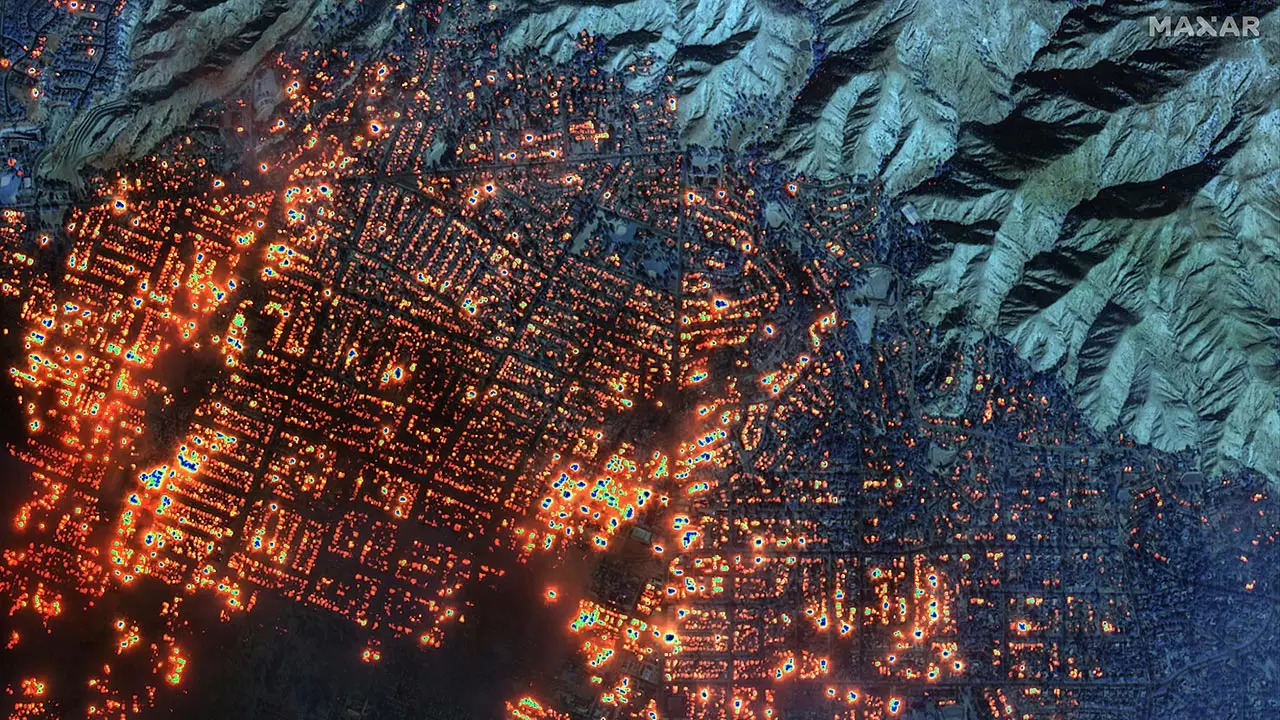Markets in Asia have rallied after worldwide plunges on Monday amid fears the US may be in recession.
Taiwan‘s stock exchange jumped following a record drop a day earlier, but shed some of the gains later in the morning amid lingering concerns over the outlook for the US economy and tech companies.
Japan‘s benchmark Nikkei 225 share index soared nearly 11% after it plunged a near record 12.4% yesterday – its biggest fall since “Black Monday” in October 1987.
Indian government bond yields are expected to remain steady while South Korea‘s Kospi was up almost 3% after dropping on Monday by the most since late 2008.
The rally in the Asian markets came after a dramatic day on Wall Street on Monday.
All the major US stock market indexes fell at the opening bell and continued to drop up to the close.
The Nasdaq Composite – the index heavily made up of technology companies – finished down 3.4%, at its lowest level since early May.
The US index containing companies relied on to be stable and profitable, the S&P 500, slid 3%, its worst day since September 2022.
Similarly, the index of 30 major companies listed on US stock exchanges, the Dow Jones Industrial Average (DJIA), ended the day down 2.6%.
The falls have come from all-time highs, however. The Nasdaq and Dow Jones tumbles follow new records set in July. The S&P is coming off a February record.
Behind the drop are seven high-performing tech companies, the so-called magnificent seven: Apple, Google parent company Alphabet, Amazon, Meta, Microsoft, AI-microchip maker Nvidia and electric car producer Tesla.
Sell-offs were not confined just to stock markets. Cryptocurrency Bitcoin reached a level not seen since February. One Bitcoin is now worth $54,650.
Read more from business:
Electric car sales forecast cut
Shocking moments from Post Office inquiry
Pret founder toasts drinks-maker Knoops
The UK’s FTSE 100 closed down more than 2% on Monday, the worst day since July 2023. The FTSE 250 also dropped on the open and had fallen 2.83% by the end of the trading day.
Other exchanges in Europe, including in France, Germany, Portugal, and Spain, also dropped between 2% and 4%.
It comes after US jobs market data on Friday came in much lower than expected for July, sending the country’s stock markets tumbling.
The US Federal Reserve also decided last week not to cut interest rates from the 5.25% to 5.5% range which they have been held at since July last year. Markets expect the central bank to make a cut in September.
It resulted in economists at Goldman Sachs saying they believed there was now a 25% chance of a recession in the US, up from their previous estimate of 15%.
Analysts at JPMorgan were more pessimistic, putting the probability of a recession at 50%.
Concerns globally have also been heightened by worries over the strength of China’s economy and several weak earnings reports from major technology firms last week, as investors grow jittery over potential returns from investment in AI.





















Discussion about this post